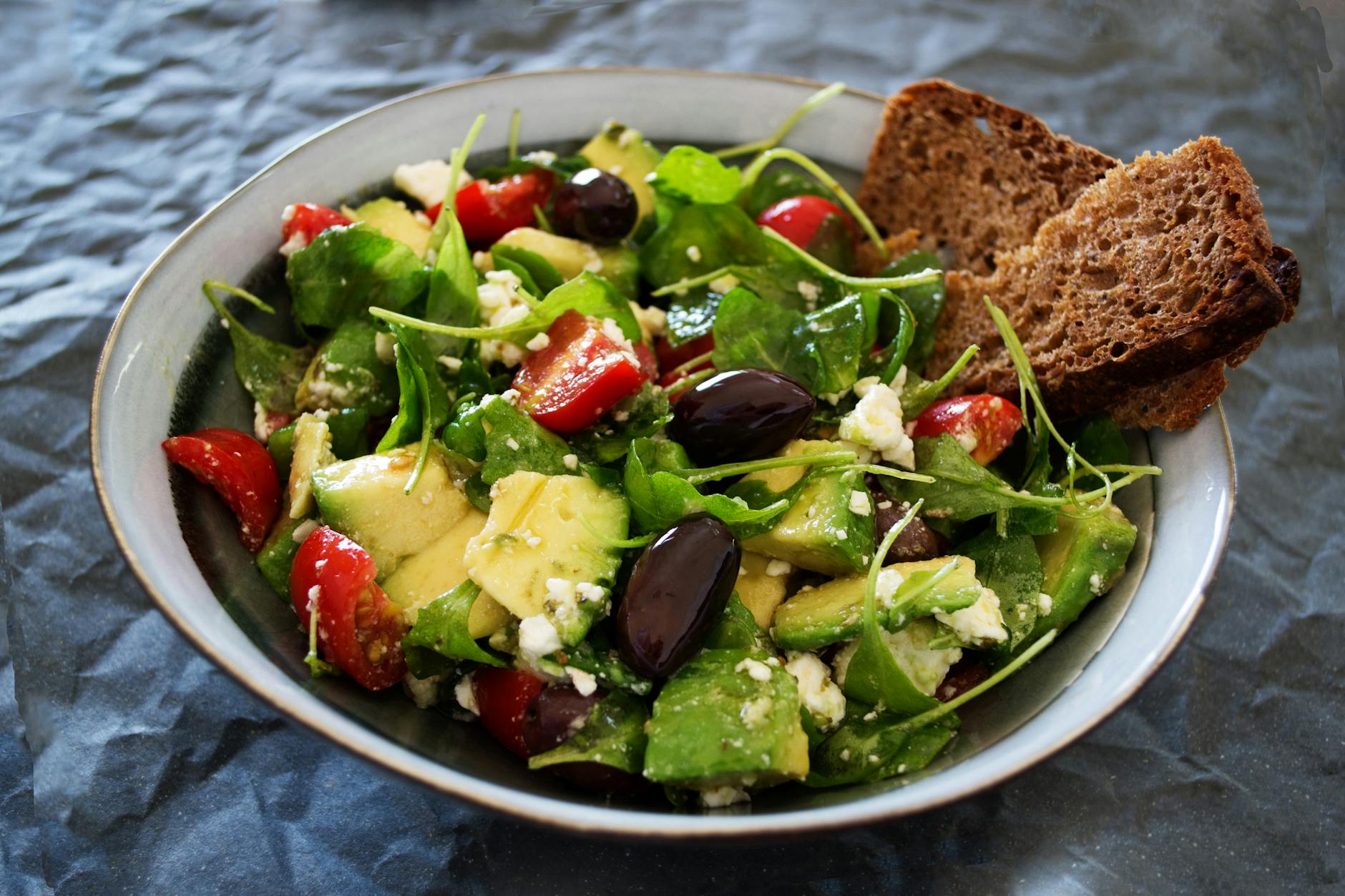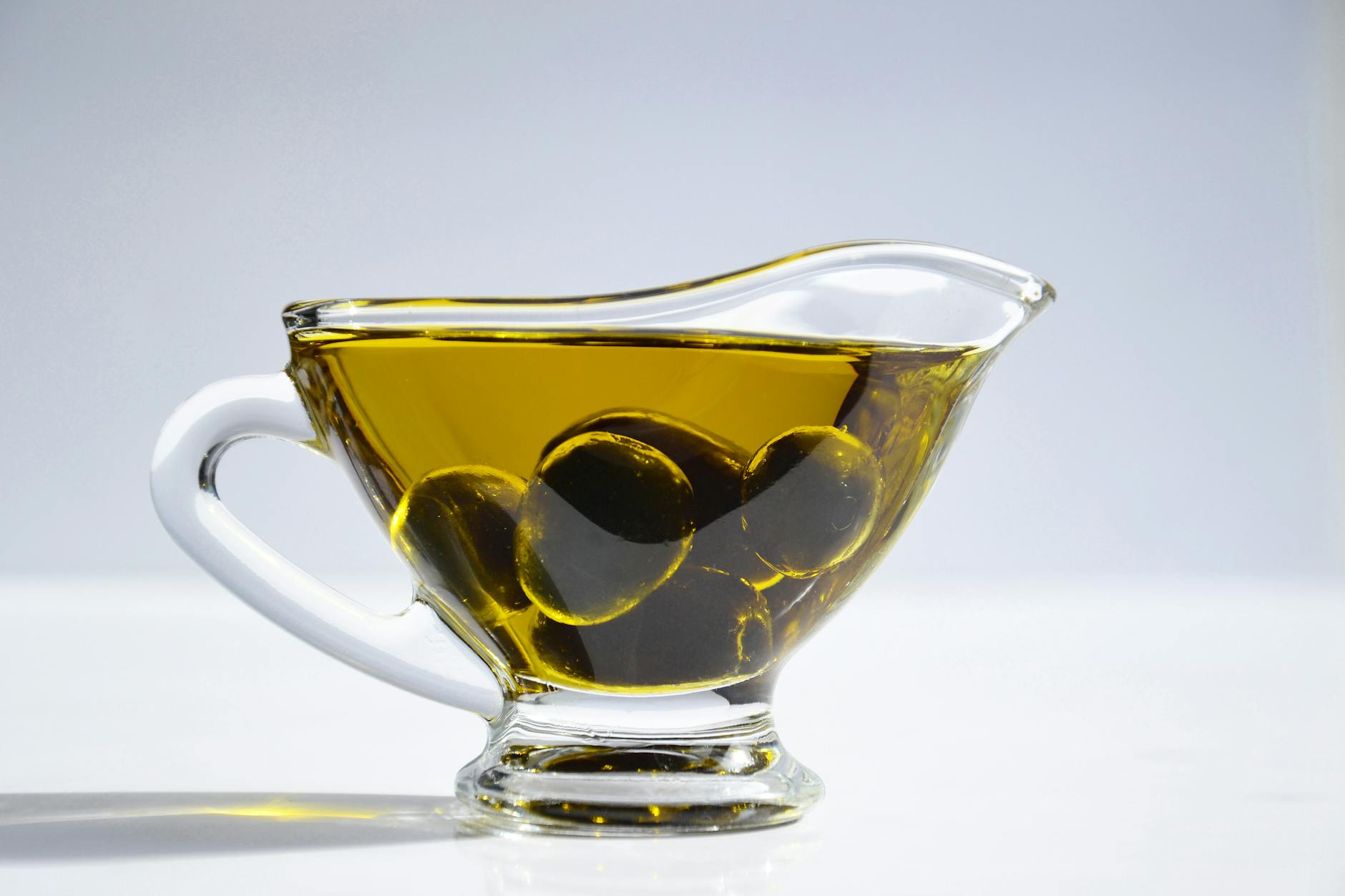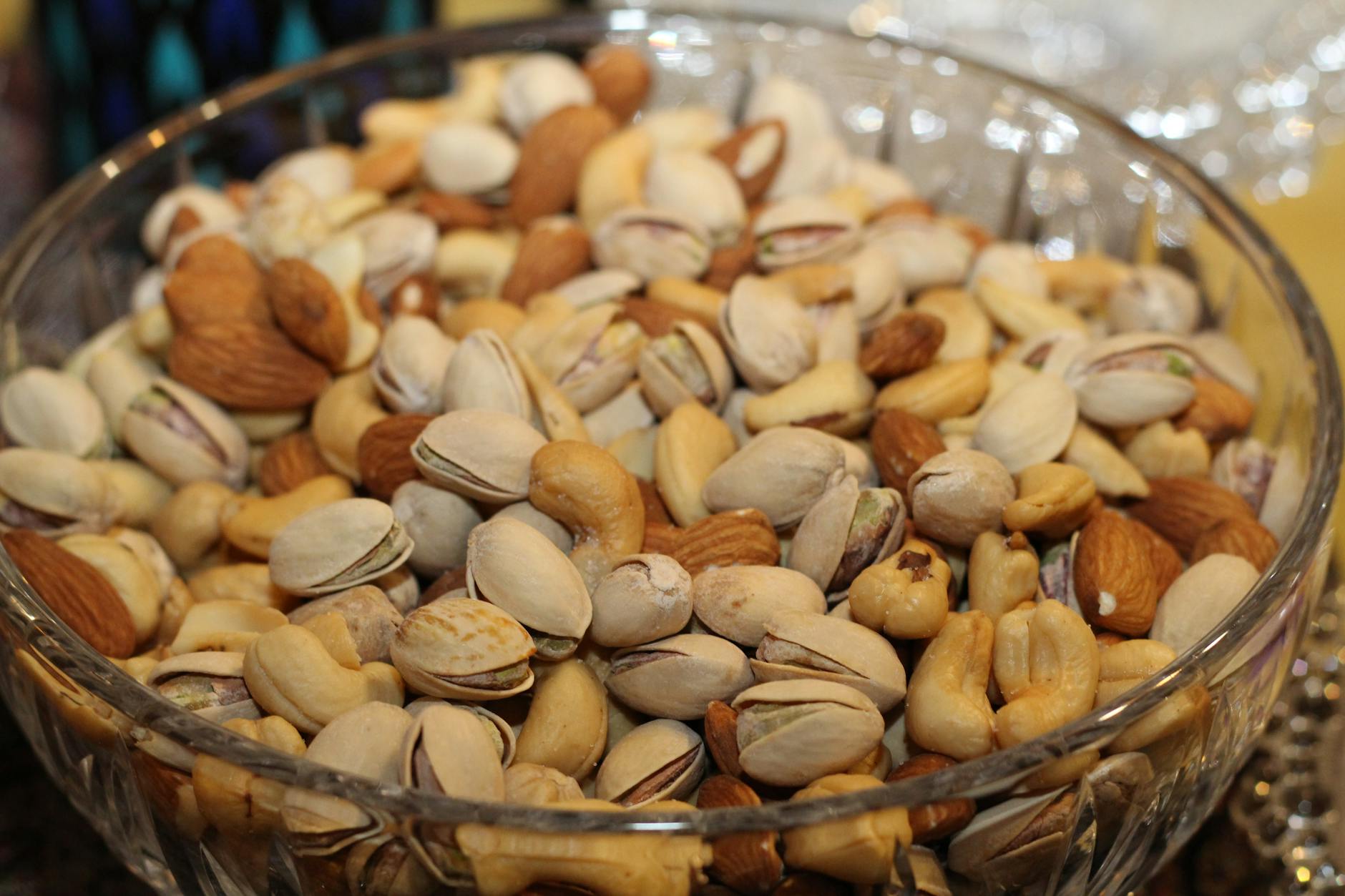Introduction

Are you tired of feeling weak and sluggish during your workouts? 💪😴 It's time to supercharge your diet and unlock your true potential! The secret to increasing your strength and stamina lies not just in your exercise routine, but in the fuel you provide your body.
Imagine effortlessly powering through your gym sessions, crushing your personal records, and feeling energized throughout the day. 🏋️♀️🚀 This isn't just a dream – it's achievable with the right nutritional strategy. By carefully selecting foods that support muscle growth, provide sustained energy, and aid in recovery, you can transform your body into a well-oiled machine.
In this blog post, we'll dive into the seven essential food groups that will help you boost your strength and stamina. From protein-packed powerhouses to hydration heroes, we'll cover everything you need to know to optimize your diet for peak performance. Get ready to discover the perfect pre-workout snacks, post-exercise recovery meals, and everyday nutrition tips that will take your fitness journey to the next level!
Protein-rich foods for muscle building
Now that we understand the importance of nutrition for strength and stamina, let's dive into the essential role of protein-rich foods in muscle building. Protein is the building block of muscles, making it crucial for anyone looking to increase their strength and endurance.
A. Lean meats and poultry
Lean meats and poultry are excellent sources of high-quality protein. They provide essential amino acids necessary for muscle repair and growth. Some top choices include:
-
Chicken breast
-
Turkey
-
Lean beef (sirloin, flank steak)
-
Pork tenderloin
These options are not only rich in protein but also contain important nutrients like iron and vitamin B12, which support overall health and energy levels.
B. Fish and seafood
Fish and seafood offer a double benefit: they're high in protein and rich in omega-3 fatty acids, which can help reduce inflammation and support recovery. Consider incorporating:
-
Salmon
-
Tuna
-
Cod
-
Shrimp
| Fish/Seafood | Protein (per 100g) | Omega-3 (g) |
|---|---|---|
| Salmon | 22g | 2.3 |
| Tuna | 30g | 1.1 |
| Cod | 18g | 0.2 |
| Shrimp | 24g | 0.3 |
C. Eggs and dairy
Eggs and dairy products are versatile protein sources that also provide additional nutrients:
-
Whole eggs
-
Greek yogurt
-
Cottage cheese
-
Milk
Eggs, in particular, are a complete protein source, containing all nine essential amino acids. Greek yogurt and cottage cheese are also excellent choices, offering both protein and probiotics for gut health.
D. Plant-based protein sources
For those following a vegetarian or vegan diet, or simply looking to diversify their protein sources, there are numerous plant-based options:
-
Legumes (lentils, chickpeas, beans)
-
Quinoa
-
Tofu and tempeh
-
Nuts and seeds
These plant-based proteins not only provide essential amino acids but also offer additional benefits such as fiber, vitamins, and minerals.
With these protein-rich foods in your diet, you'll be well on your way to building stronger muscles and increasing your stamina. Next, we'll explore the role of carbohydrates in providing sustained energy for your workouts and daily activities.

Carbohydrates for sustained energy
Now that we've covered protein-rich foods for muscle building, let's explore the importance of carbohydrates in maintaining sustained energy for strength and stamina. Carbohydrates are the body's primary source of fuel, especially during high-intensity activities and endurance exercises.
A. Whole grains
Whole grains are excellent sources of complex carbohydrates that provide sustained energy release. They're also rich in fiber, vitamins, and minerals. Some examples include:
-
Brown rice
-
Quinoa
-
Oats
-
Whole wheat bread
B. Starchy vegetables
Starchy vegetables are another great source of carbohydrates that can help boost energy levels. They're also packed with essential nutrients and fiber. Consider incorporating:
-
Sweet potatoes
-
Butternut squash
-
Corn
-
Peas
C. Fruits
Fruits offer a combination of simple and complex carbohydrates, providing both quick and sustained energy. They're also rich in vitamins, minerals, and antioxidants. Some energy-boosting fruits include:
-
Bananas
-
Apples
-
Berries
-
Oranges
D. Legumes
Legumes are an excellent source of complex carbohydrates and plant-based protein, making them ideal for sustained energy and muscle support. Some nutrient-dense legumes include:
-
Lentils
-
Chickpeas
-
Black beans
-
Kidney beans
| Carbohydrate Source | Benefits | Examples |
|---|---|---|
| Whole grains | Sustained energy, fiber, vitamins | Brown rice, quinoa, oats |
| Starchy vegetables | Complex carbs, nutrients, fiber | Sweet potatoes, squash, corn |
| Fruits | Quick and sustained energy, antioxidants | Bananas, apples, berries |
| Legumes | Complex carbs, plant-based protein | Lentils, chickpeas, beans |
Incorporating a variety of these carbohydrate sources into your diet can help maintain energy levels throughout the day and support your strength and stamina goals. Next, we'll explore the role of nutrient-dense vegetables in overall health and performance.

Nutrient-dense vegetables for overall health
Now that we've covered essential macronutrients, let's explore the importance of nutrient-dense vegetables in boosting strength and stamina. These powerhouse foods are packed with vitamins, minerals, and antioxidants that support overall health and enhance athletic performance.
A. Leafy greens
Leafy greens are nutritional superstars that should be a staple in any strength and stamina-building diet. They're low in calories but high in essential nutrients, making them an excellent choice for athletes and fitness enthusiasts.
-
Spinach: Rich in iron, which helps transport oxygen to muscles
-
Kale: Packed with vitamin K for bone health and vitamin C for immune support
-
Swiss chard: High in magnesium, crucial for muscle function and energy production
B. Cruciferous vegetables
Cruciferous vegetables are known for their unique health benefits and should be incorporated into your diet regularly. These veggies are particularly beneficial for reducing inflammation and supporting detoxification processes in the body.
| Vegetable | Key Benefits |
|---|---|
| Broccoli | High in vitamin C and fiber |
| Cauliflower | Contains choline for brain health |
| Brussels sprouts | Rich in antioxidants and vitamin K |
C. Colorful veggies for antioxidants
Eating a rainbow of colorful vegetables ensures you're getting a wide variety of antioxidants, which help protect your cells from oxidative stress caused by intense physical activity.
-
Red: Tomatoes and red peppers (lycopene)
-
Orange: Carrots and sweet potatoes (beta-carotene)
-
Purple: Eggplant and purple cabbage (anthocyanins)
Incorporating these nutrient-dense vegetables into your diet will not only support your strength and stamina goals but also contribute to your overall health and well-being. Next, we'll explore the role of healthy fats in supporting hormone production and energy levels.

Healthy fats to support hormone production
Now that we've covered the importance of carbohydrates and nutrient-dense vegetables, let's explore how healthy fats play a crucial role in supporting hormone production, which is essential for strength and stamina.
A. Nuts and seeds
Nuts and seeds are powerhouses of healthy fats, protein, and essential nutrients. They provide a perfect balance of omega-3 and omega-6 fatty acids, which are vital for hormone regulation.
-
Almonds: Rich in vitamin E and magnesium
-
Walnuts: High in omega-3 fatty acids
-
Pumpkin seeds: Excellent source of zinc
-
Chia seeds: Packed with fiber and omega-3s
B. Avocado
Avocados are not only delicious but also incredibly nutritious. They're packed with monounsaturated fats, which help in the production of testosterone and other key hormones.
Also Read : 15 Delicious Way To Eat Avocado
C. Olive oil
Extra virgin olive oil is a staple of the Mediterranean diet and for good reason. It's rich in antioxidants and healthy monounsaturated fats that support hormone balance and reduce inflammation.
D. Fatty fish
Fatty fish are excellent sources of omega-3 fatty acids, which are crucial for hormone production and overall health.
| Fish Type | Omega-3 content (per 3 oz serving) |
|---|---|
| Salmon | 1.5 grams |
| Mackerel | 1.0 grams |
| Sardines | 1.3 grams |
| Herring | 1.5 grams |
Incorporating these healthy fats into your diet can significantly boost your body's ability to produce and regulate hormones, ultimately contributing to increased strength and stamina. Next, we'll explore the importance of hydration and electrolyte-rich foods in maintaining peak performance.

Hydration and electrolyte-rich foods
Proper hydration and electrolyte balance are crucial for maintaining strength and stamina during physical activities. Let's explore some excellent options to keep your body well-hydrated and replenish essential electrolytes.
A. Water-rich fruits and vegetables
Incorporating water-rich fruits and vegetables into your diet is an excellent way to stay hydrated while also benefiting from their nutrient content. Here's a list of some top choices:
-
Watermelon (92% water)
-
Cucumber (95% water)
-
Strawberries (91% water)
-
Celery (95% water)
-
Tomatoes (94% water)
These foods not only provide hydration but also offer vitamins, minerals, and antioxidants that support overall health and stamina.
B. Coconut water
Coconut water is often referred to as "nature's sports drink" due to its natural electrolyte content. It's an excellent source of:
-
Potassium
-
Magnesium
-
Sodium
-
Calcium
These electrolytes are essential for maintaining proper fluid balance and supporting muscle function. Coconut water is also low in calories and carbohydrates, making it a healthier alternative to many commercial sports drinks.
C. Electrolyte-enhanced beverages
While natural sources of hydration and electrolytes are ideal, sometimes electrolyte-enhanced beverages can be beneficial, especially during intense workouts or in hot conditions. Here's a comparison of some popular options:
| Beverage Type | Electrolytes | Carbohydrates | Calories |
|---|---|---|---|
| Sports Drinks | High | Moderate | Moderate |
| Electrolyte Tablets | High | Low | Low |
| Coconut Water | Moderate | Low | Low |
When choosing an electrolyte-enhanced beverage, consider your specific needs and the intensity of your activity. For longer, more intense workouts, a sports drink with some carbohydrates might be beneficial. For shorter activities or daily hydration, a low-calorie option like electrolyte tablets dissolved in water could be more appropriate.
Now that we've covered hydration and electrolyte-rich foods, let's move on to pre-workout nutrition for optimal performance.

Pre-workout nutrition for optimal performance
Now that we've covered the essential nutrients for building strength and stamina, let's focus on pre-workout nutrition to ensure optimal performance during your training sessions.
A. Timing of meals
The timing of your pre-workout meal is crucial for maximizing energy and performance. Here's a quick guide:
| Time before workout | Meal size | Examples |
|---|---|---|
| 2-3 hours | Large meal | Chicken, brown rice, vegetables |
| 1-2 hours | Medium meal | Greek yogurt with fruits and nuts |
| 30-60 minutes | Small snack | Banana with almond butter |
B. Balanced macronutrients
A well-balanced pre-workout meal should include:
-
Carbohydrates: Provide quick energy for your workout
-
Protein: Supports muscle function and recovery
-
Healthy fats: Sustain energy levels
Aim for a ratio of approximately 2:1 carbohydrates to protein, with a small amount of healthy fats.
C. Easy-to-digest options
To avoid discomfort during your workout, opt for easily digestible foods. Some excellent choices include:
-
Oatmeal with berries and a scoop of protein powder
-
Whole grain toast with mashed avocado and sliced hard-boiled egg
-
Smoothie made with banana, spinach, Greek yogurt, and chia seeds
Remember, individual tolerances may vary, so experiment to find what works best for you.
Next, we'll explore the importance of post-workout recovery foods to help you replenish and rebuild after your training sessions.
Post-workout recovery foods
After an intense workout, your body needs the right nutrients to repair and rebuild. Let's explore the essential post-workout recovery foods that will help you maximize your strength and stamina gains.
A. Fast-absorbing proteins
Fast-absorbing proteins are crucial for muscle recovery and growth. They provide your body with the necessary amino acids to repair damaged muscle tissue and promote protein synthesis.
-
Whey protein powder
-
Greek yogurt
-
Egg whites
-
Lean chicken breast
These protein sources are easily digestible and quickly absorbed by your body, making them ideal for post-workout consumption.
B. Simple carbohydrates
Simple carbohydrates help replenish glycogen stores in your muscles, which are depleted during intense exercise. They also aid in the absorption of protein and other nutrients.
| Simple Carbohydrate | Benefits |
|---|---|
| Banana | Rich in potassium, easily digestible |
| White rice | Quick energy source, easily digestible |
| Honey | Natural sugar, antioxidants |
| Raisins | Portable, quick energy boost |
C. Anti-inflammatory foods
Intense workouts can cause inflammation in your body. Consuming anti-inflammatory foods can help reduce muscle soreness and promote faster recovery.
-
Tart cherry juice: Rich in antioxidants and may reduce muscle pain
-
Berries: High in antioxidants and vitamin C
-
Turmeric: Contains curcumin, a powerful anti-inflammatory compound
-
Fatty fish: Packed with omega-3 fatty acids, which have anti-inflammatory properties
By incorporating these post-workout recovery foods into your diet, you'll be providing your body with the essential nutrients it needs to repair, rebuild, and prepare for your next strength and stamina-building session. Remember to consume these foods within 30-60 minutes after your workout for optimal results. In the next section, we'll discuss how proper hydration and electrolyte-rich foods can further enhance your performance and recovery.
Also Read : What Is An Intermittent Fasting(IF) And The Benefits
Conclusion

Remember, timing is crucial when it comes to nutrition for strength and stamina. Focus on consuming the right foods before and after your workouts to maximize your gains and support recovery. By following these nutritional guidelines and consistently fueling your body with the right foods, you'll be well on your way to increasing your strength and stamina, ultimately reaching your fitness goals.




0 Comments
If you have any doubt, please let me know